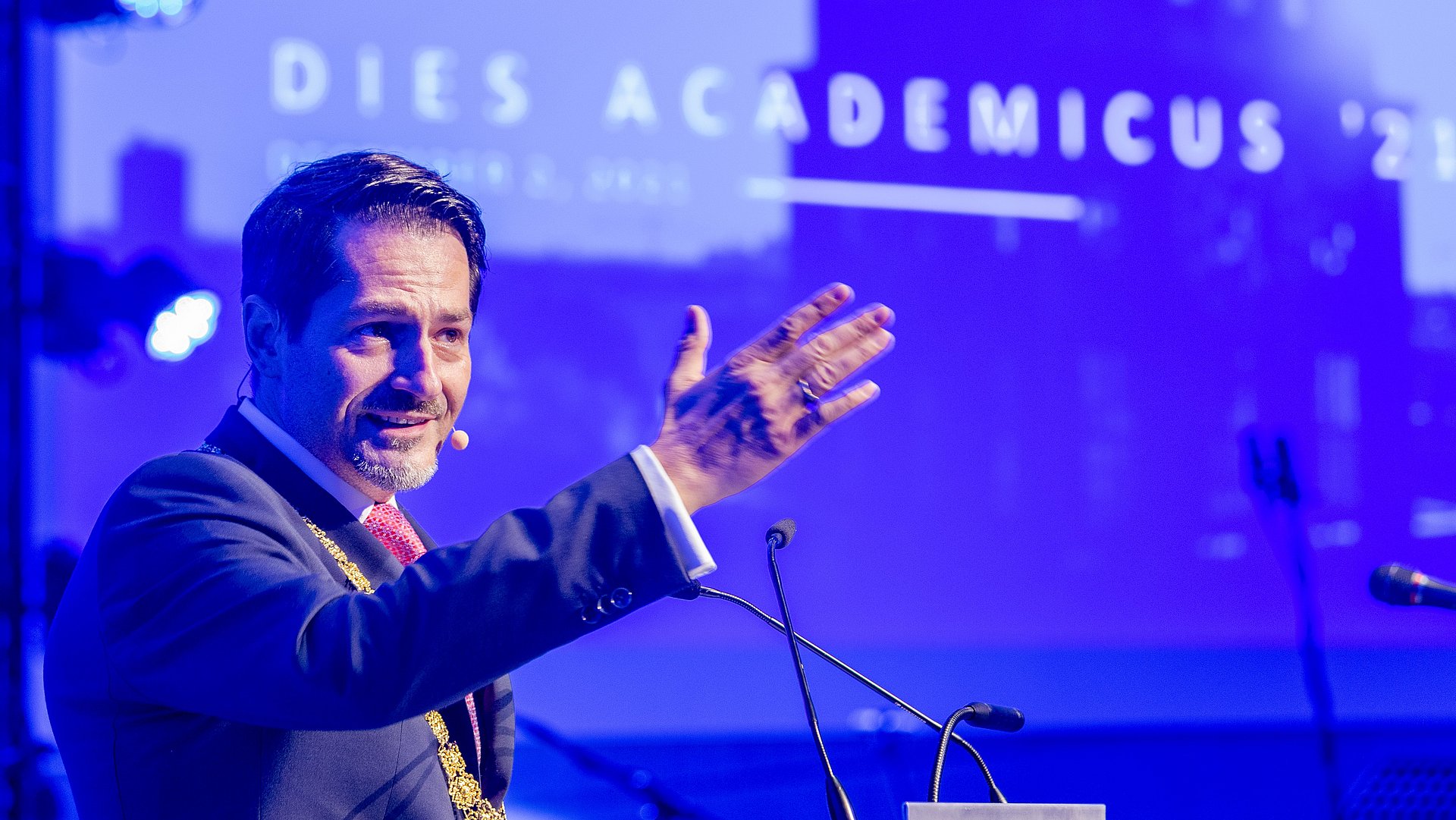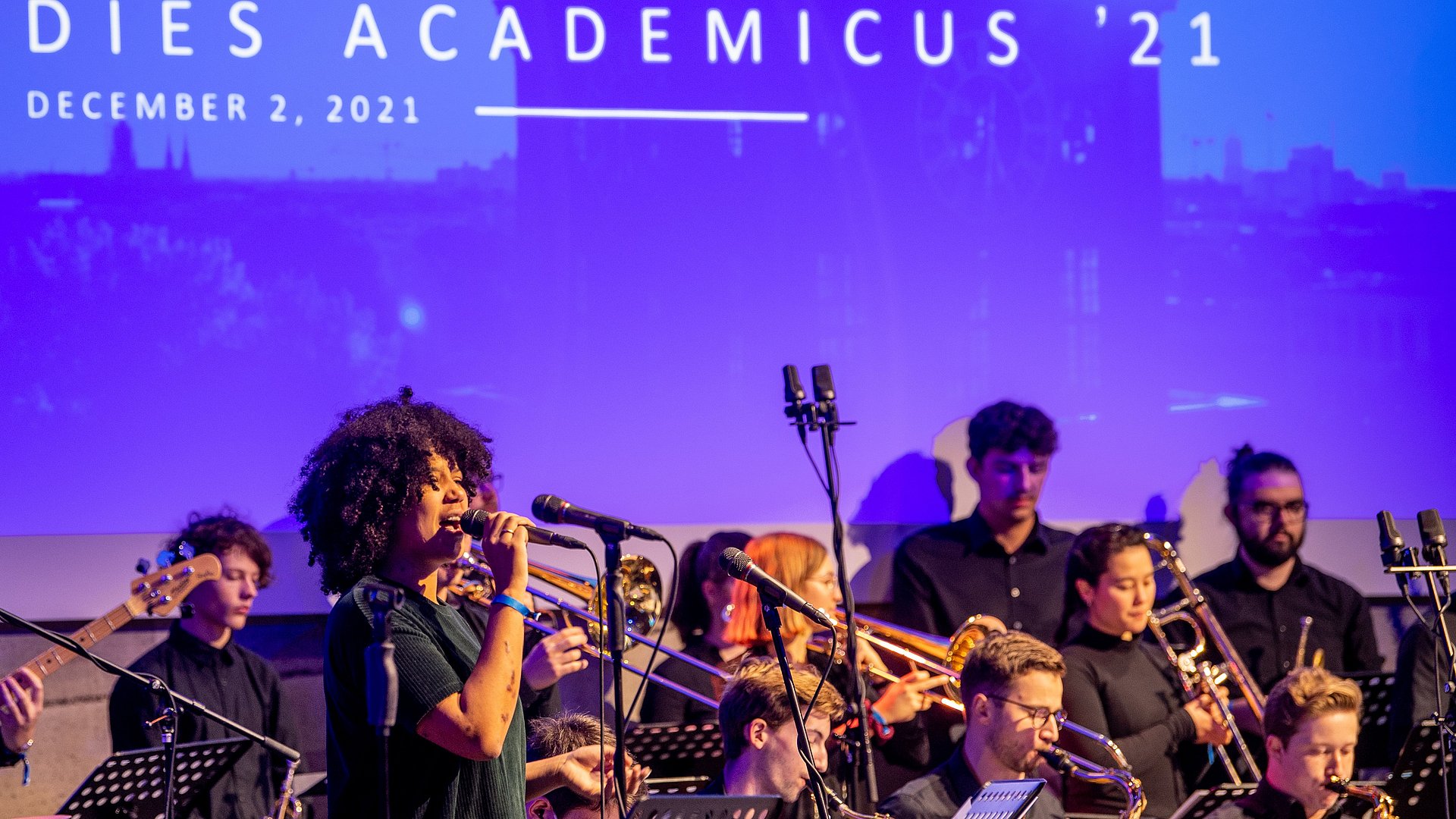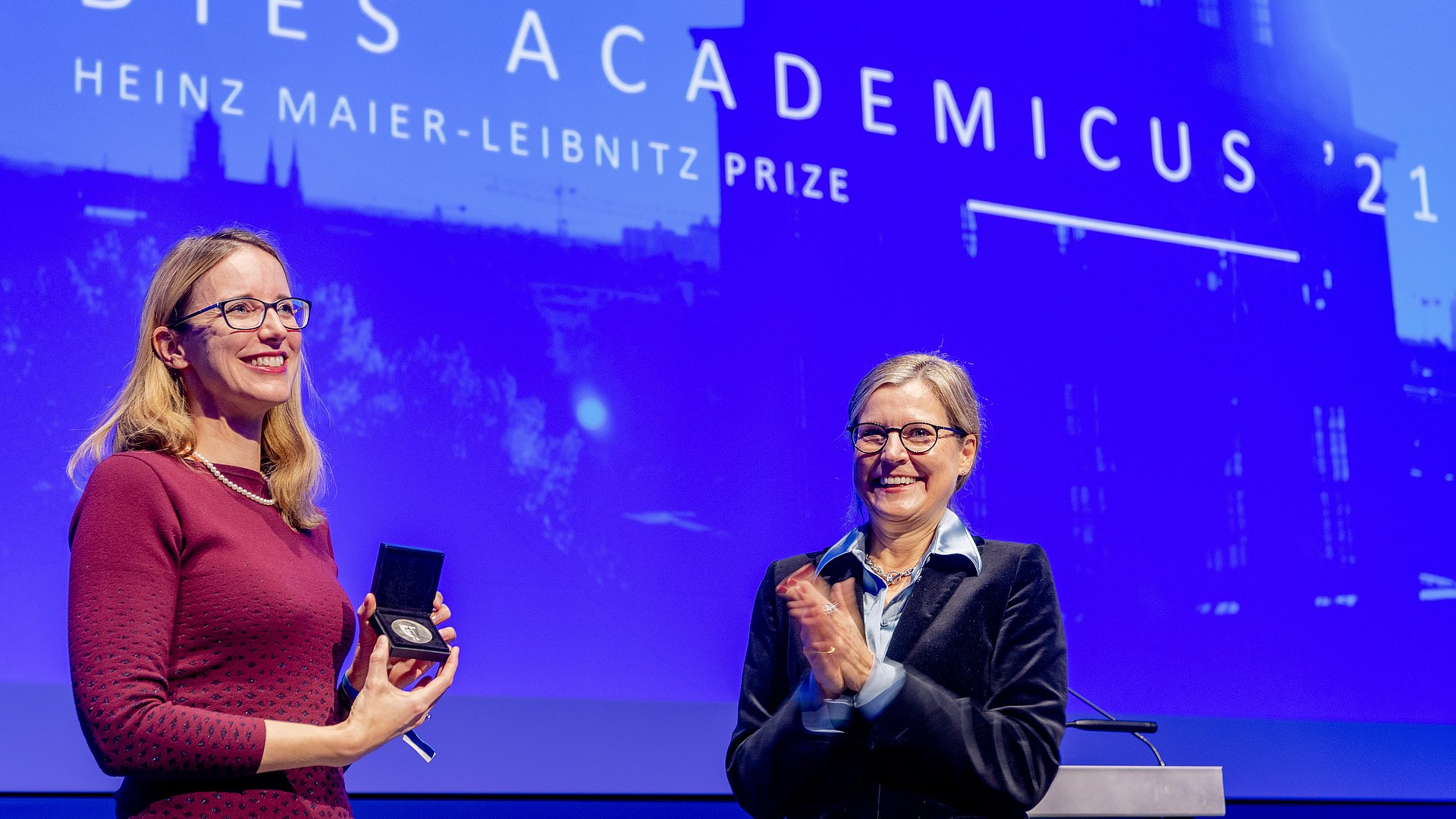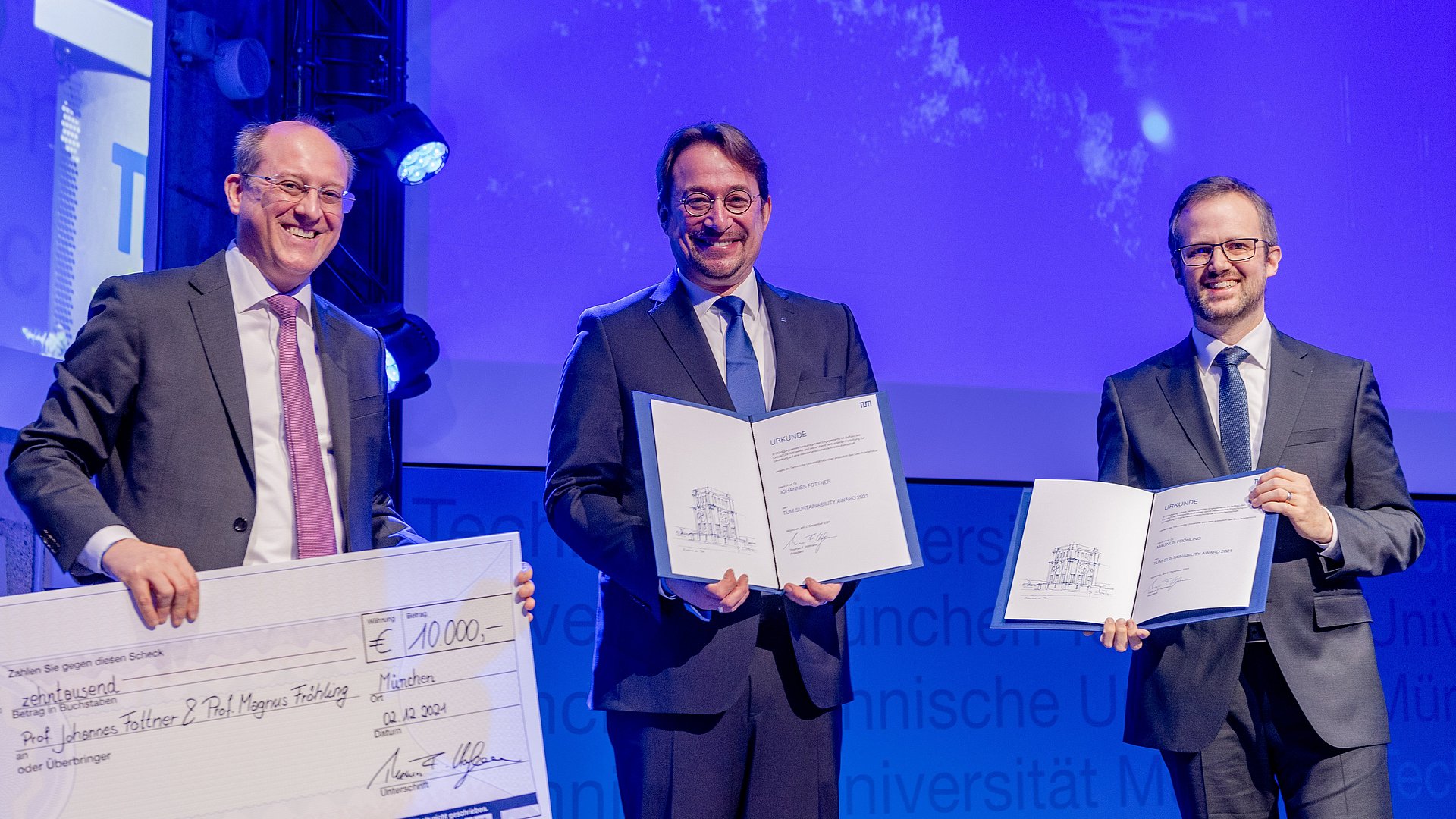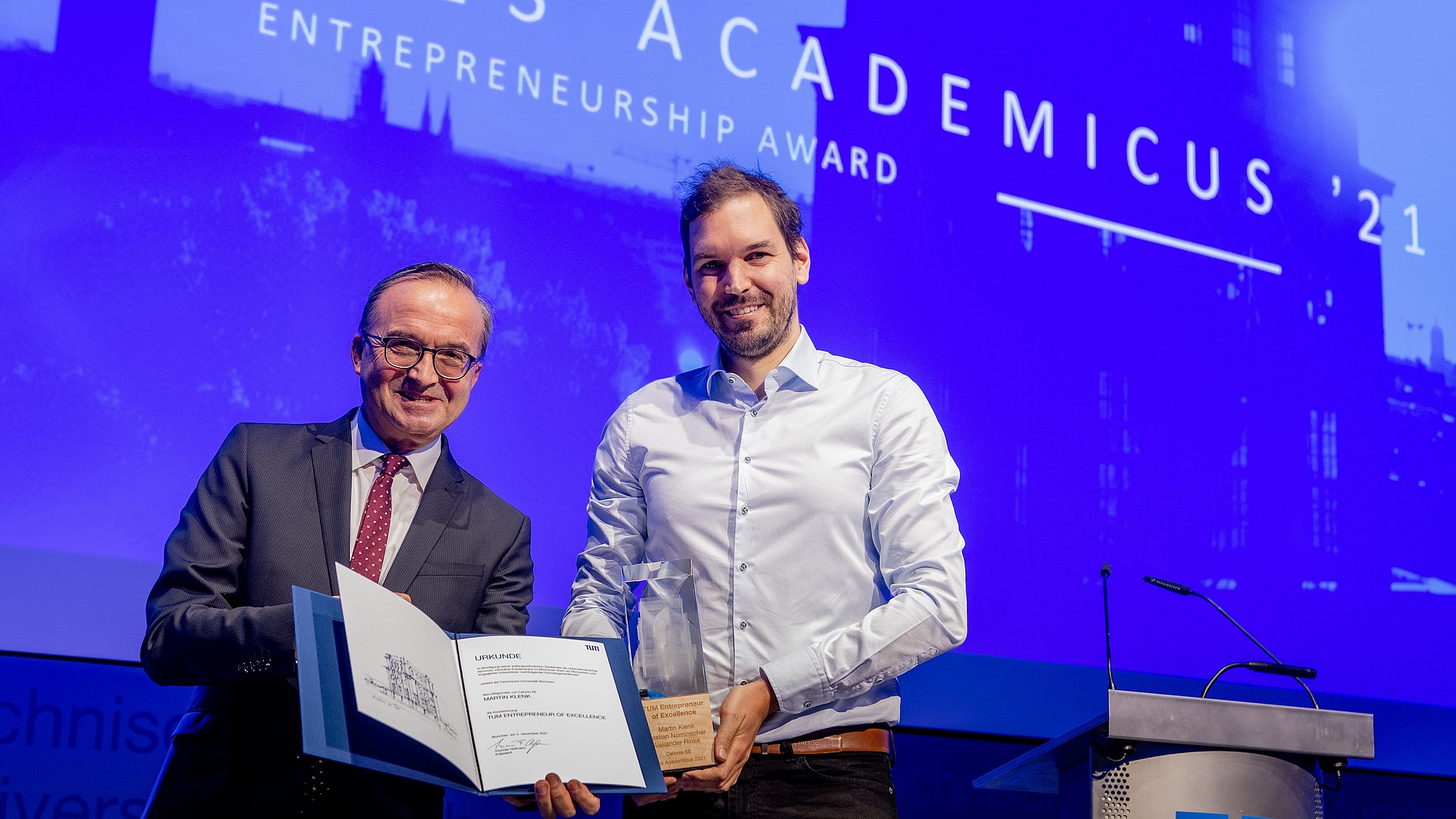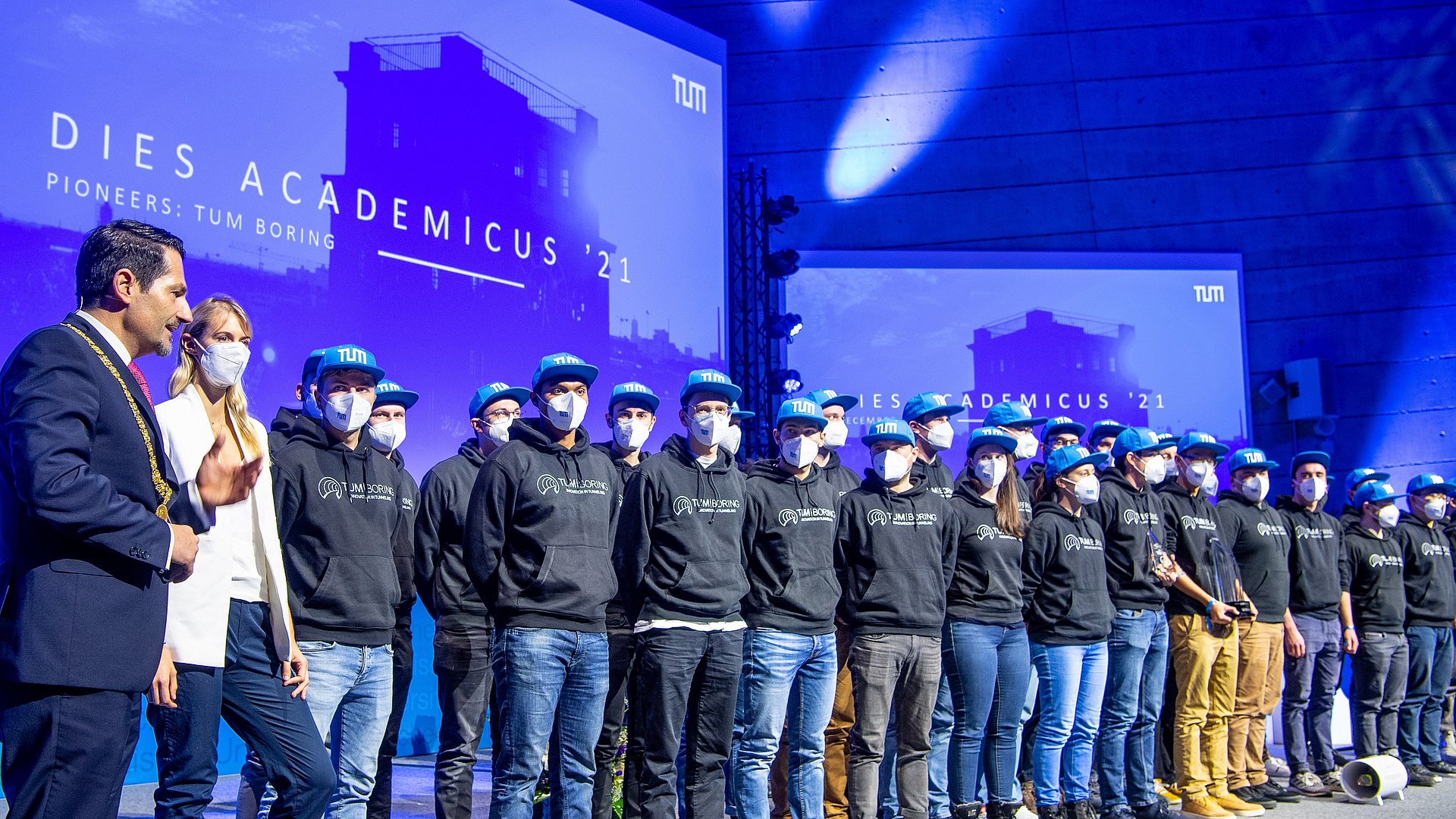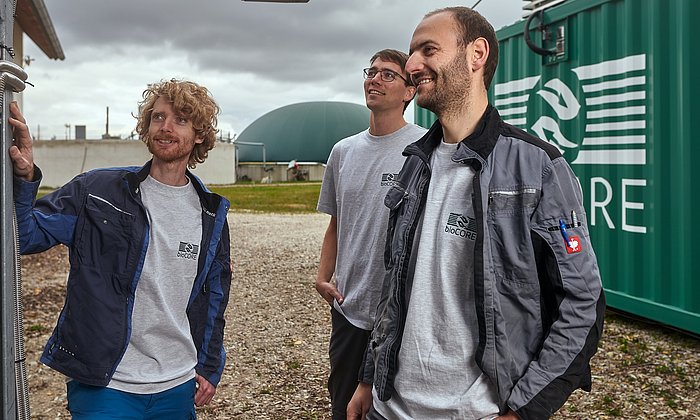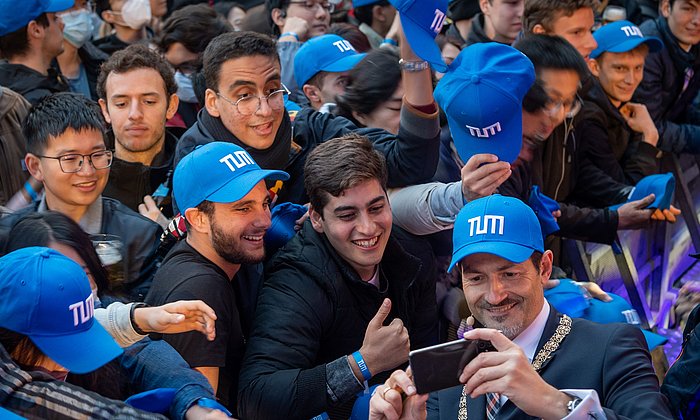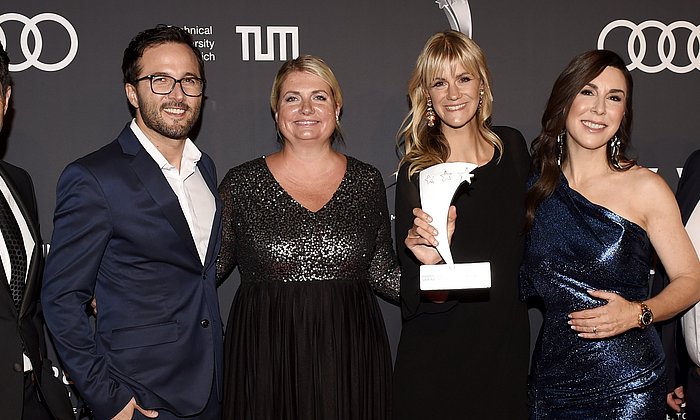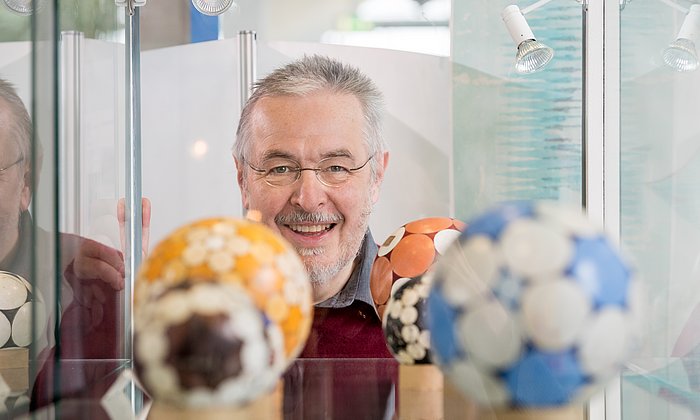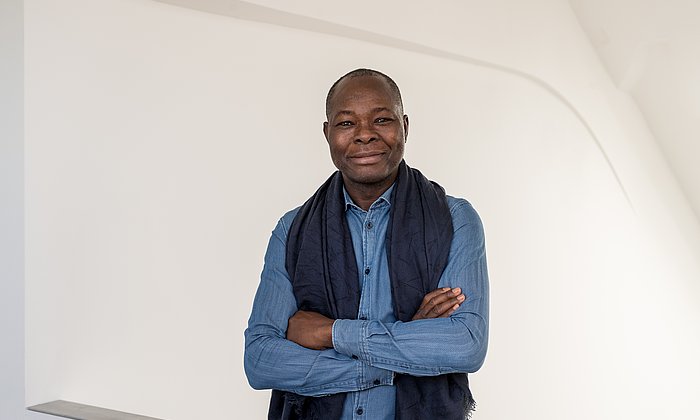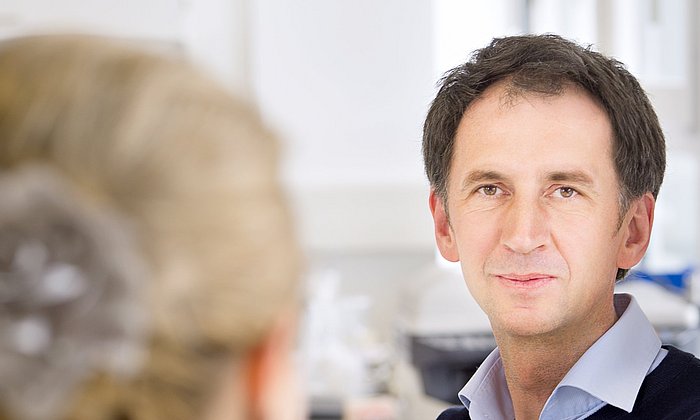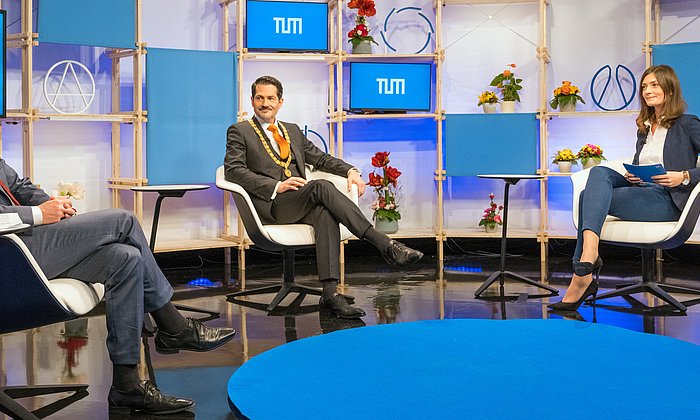TUM Dies Academicus
Academic celebration highlights TUM successes in 2021
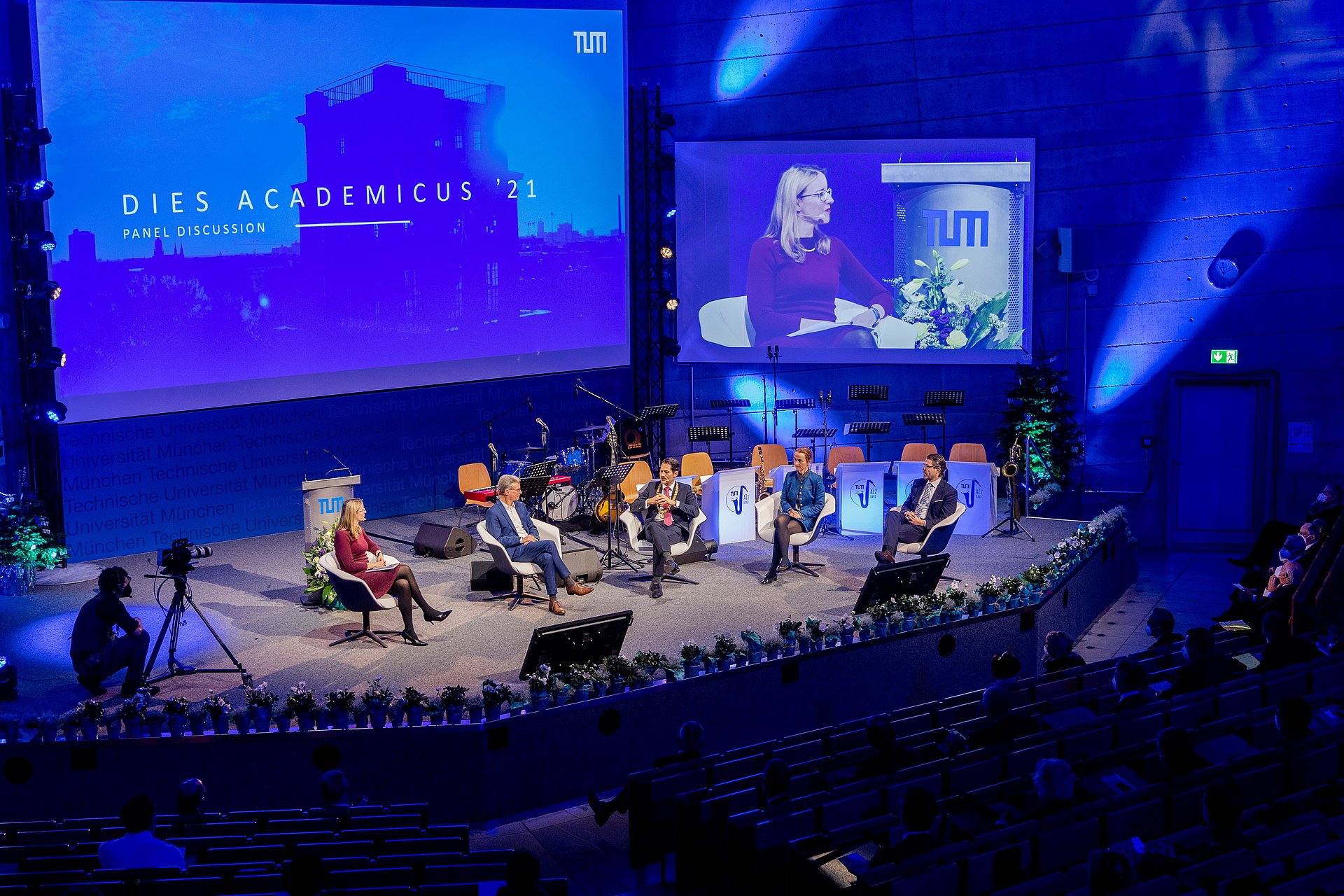
Speaking in the Audimax auditorium at the TUM main campus, Hofmann recalled "the most beautiful day of the year," October 18, as he was able to welcome 14,000 new students to in-person winter semester classes. "You fill TUM with life – and you fill us with joy!" said the university president. TUM has set a new enrollment record with a total of 48,200 students. The share of woman students rose to 37 percent, double the number recorded one decade ago. Hofmann added that a 38 percent share of international students from 140 countries makes TUM more diverse than ever. "You are turning us into a really global university!"
TUM's future plans
President Hofmann also outlined TUM's plans for the future: "We want to become the Thought Leader for trustworthy, socially compatible and sustainable innovations. Our guiding vision, Human-Centered Engineering, is at the core of this development." Here we integrate economic, ecological, political and societal concerns in the innovation processes of technology development as well as in teaching. "The future does not need 'nerds' – much more it needs excellently educated personalities who reflect more on their own actions, who think in political terms and can thus better orient technical functionalities towards humans, and who can also think and act in terms of an ecologically sustainable Circular Economy."
Structural reform: Progress with Schools
President Hofmann went on to say that TUM, focusing on complex challenges, is well on its way to becoming a system-integrative university with a matrix structure of Schools and Integrative Research Centers which promote innovation. "This will make us more agile, more efficient and more scientifically dynamic in our research and teaching activities."
2021 marked the start of three more Schools: The TUM School of Engineering & Design consolidates expertise from the fields of mechanical engineering as well as civil, geo and environmental engineering, aerospace and geodesy and a part of electrical engineering and architecture. The TUM School of Social Sciences and Technology takes the TUM faculties for social sciences, political science and educational sciences subjects from their peripheral positions to a single instance at the center of the university. The third school, the TUM School of Management, focuses on the interfaces of management, leadership and technologies.
The first School, launched in 2020, was the TUM School of Life Sciences in Weihenstephan. The TUM School of Natural Sciences and the TUM School of Computation, Information & Technology will follow next year. The structural reform will be completed in 2023 with the TUM School of Medicine & Health, which will also incorporate sports sciences.
Praise from the Bavarian State government
Bavarian Minister of Science Bernd Sibler said on the occasion of the gala ceremonies in the Audimax at the TUM main campus: "Excellent science and research are the central factors in making sure that we can continue to live well in the future. In this context the challenges of our world are so multi-layered and complex that interdisciplinary collaboration and exchange among the widest possible range of academic disciplines is essential for new perspectives, solutions and findings. TUM embodies the holistic scientific approach in a more than exemplary manner, driving the connection of the classical strengths of a Technical University of Excellence with humanities and social sciences. This lays the foundation for the innovations of the future which can make all of our lives a little bit better every day."
Corona as a constant challenge
In his address, student representative Fabian Richter discussed the side-effects of the Corona protective measures at universities. He referred to the high restrictions placed on students by state regulations as "hard to understand", pointing out that vaccination rates are after all particularly high among university students. The damage resulting from missed in-class instruction "can hardly be expressed in numerical terms," he warned.
In his speech President Hofmann further emphasized the collective and dedicated effort on the part of all at TUM in handling the pandemic. "I cannot thank all of you enough for your personal efforts in research, teaching, administration, for your flexibility and your pragmatism." He added that this was the only way for TUM to make its way through the Corona crisis. "This is our shared success! I greatly appreciate your commitment and loyalty – Thank you!"
University honors
A number of awards were also presented during the annual Dies Academicus academic celebration:
TUM's highest honor, The Heinz Maier-Leibnitz Medal, was presented to medical ethicist Prof. Alena Buyx. TUM Senior Vice President Prof. Juliane Winkelmann said: "Prof. Buyx has succeeded in keeping the sometimes highly emotional debates of the pandemic on an objective level." Winkelmann added that the Medal honored the outstanding achievements by Buyx in providing scientifically well-founded information and consultation to the public and policy makers as Chair of the German Ethics Council. Buyx thanked TUM for its great support for her activities in the Ethics Council.
The TUM Sustainability Award went to Prof. Johannes Fottner and Prof. Magnus Fröhling for founding the CirculaTUM network. In explaining the selection, TUM Senior Vice President Prof. Gerhard Kramer pointed to the paradigm change from linear economies to a Circular Economy.
Celonis, a start-up spun off from TUM and in the meantime valuated in the two-digit billion range, was honored as TUM Entrepreneur of Excellence. TUM Senior Vice President Prof. Gerhard Müller had praise for the exemplary dedication of the three founders and TUM alumni Bastian Nominacher, Alexander Rinke and Martin Klenk to promoting talented young experts at our university.
Klenk thanked TUM for its tremendous support: "We founders met one another here at TUM. We learned the theoretical foundations of our business idea here. The idea for our process mining software emerged while performing research here in the TUM library. And here we received a diverse range of support in founding and building the company Celonis."
TUM start-up Social Bee was honored as an exemplary representative of Social Entrepreneurship. The company helps refugees and disabled individuals transition into the job market by providing them with qualifications and directly negotiating with businesses.
President Hofmann expressed great pride in the student initiative TUM Boring. The 60 students from 16 departments and 16 countries won out against 400 other student teams from around the world in a tunnel drilling competition. Their machine, which they built themselves, left their competitors far behind.
Another TUM team was victorious in the Indy Autonomous Challenge at the Indianapolis Motor Speedway. The team won a high-speed race completely without a human driver, driving the vehicle using nothing but Artificial Intelligence.
And the XPRIZE Carbon Removal Student Competition was also won by a team from TUM with the prototype of a new system concept for high-temperature fuel cells. The system makes it possible to eliminate combustion gas loss to achieve an almost 100-percent utilization of methane from biogas.
Special external awards in 2021 for TUM researchers:
In his keynote address, President Hofmann mentioned some particularly prestigious awards presented to TUM researchers in 2021:
Physician Prof. Jürgen Ruland was honored with the renowned 2021 Leibniz Prize by the German Research Foundation (Deutsche Forschungsgemeinschaft or DFG). The Prize, endowed with 2.5 million euros, recognizes his leading-edge work on signal transmission in immune cells and cancer cells: Ruland discovered an "emergency shutdown switch" in defective cells.
Prof. Francis Kéré was honored with the 2021 Thomas Jefferson Foundation Medal in Architecture. Professor Kéré is among the most important representatives of contemporary socially committed architecture. His wonderful work combines traditional construction materials with the latest in modern engineering technologies.
Prof. Alena Buyx received the 2021 German National Prize for her brilliant work as Chair of the German Ethics Council. During the pandemic she has continuously succeeded in keeping sometimes highly emotional debates on an objective level.
Mathematician Prof. Jürgen Richter-Gebert was honored by the German Research Foundation and the donors association Stifterverband for German Science with the 2021 Communicator Award, the most important award of its kind in Germany, endowed with 50,000 euros. He repeatedly offered the public, students and children in Corona lockdown new avenues to access mathematics: He uses interactive exhibitions and creative digital contributions to motivate individuals to experiment on their own and to investigate the beauty of mathematics.
Technical University of Munich
Corporate Communications Center
- Ulrich Meyer
- presse@tum.de
- Teamwebsite
